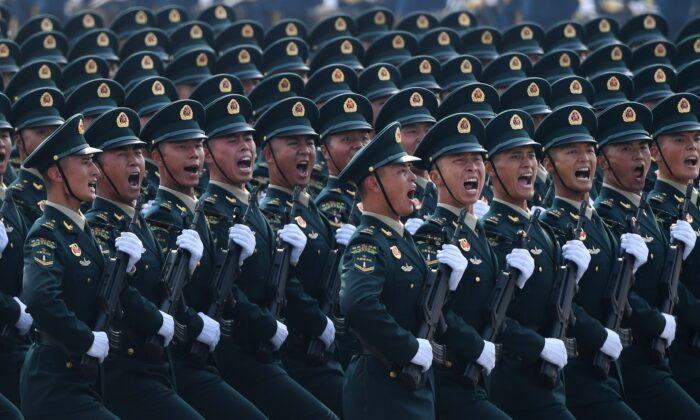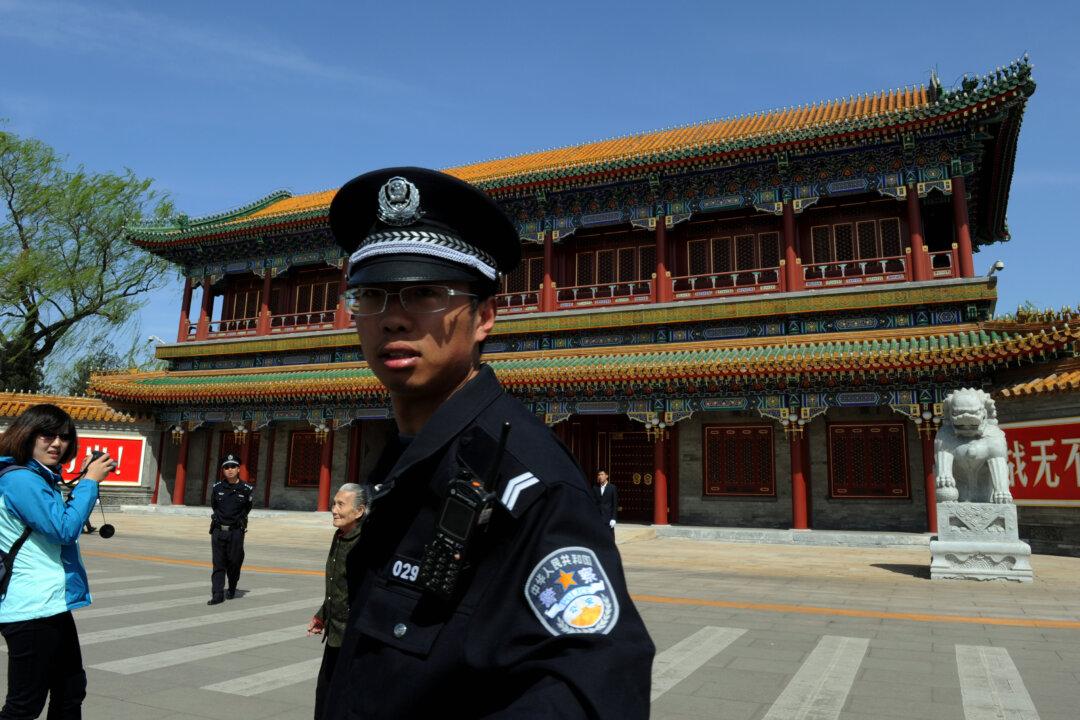Starting Jan. 1, 2022, China’s military expenditure will be expanded to provide free or preferential medical treatment to military families, as part of efforts to “maintain a focus on war preparation” and “strengthen troops’ cohesion and combat power,” according to Chinese state-owned media.
The new regulation will go into effect with the approval of Xi Jinping, chairman of the Central Military Commission, said Chinese Communist Party (CCP) Military Daily on Oct. 27, stating that it enlarges the scope of free medical treatment to military personnel’s spouses and minor children, and preferential medical treatment to military officers’ parents and their spouses’ parents.
Chen Pokong, a U.S.-based Chinese political commentator, said on his YouTube media program that the CCP’s new rules are a way to invest big money in buying the hearts and minds of the military.
It sounds like good news for military personnel, but there is a premise and purpose inside, that is focusing on combat, said Chen, “Military personnel’s families get free medical care, but they have to support their spouses going to war. [The CCP] provides families free medical care in exchange for family members going to the front line to die.”
“Seventy percent of these soldiers and officers are the only child in the family,” Chen said, “and they don’t want to get killed in the war, nor do their parents.” Most Chinese families have only one child each due to the CCP’s one-child policy since 1980—the policy was said to limit population increase.
Apparently, most of the high-ranking Communist Party officials would not let their sons and daughters go to the front lines to face death. Because of this unfair environment in the military, Chen said “it would inevitably result in anti-war and war-weariness in the military.”
Wang He, an overseas commentator on current affairs, told The Epoch Times that the CCP aims to keep the troops in captivity and detach them from society—assuming a very tight control over their thinking and political stance—and every month the troops are provided with numerous political materials to study.
“The CCP requires them [the military] to be obedient to the CCP and does not treat them as human beings, but as tools.” He said.
“To settle down active-duty military personnel, the CCP uses money to buy their hearts and minds,” Wang said referring to many retired military personnel who are not treated well and keep appealing for help, which might have an impact on active-duty troops.
China’s defense expenditure is made up of three main components: personnel subsistence, training maintenance, and equipment, according to the CCP’s defense review released in July 2019.
Wang observed, “the military equipment allocation accounts for 40 percent, training is just over 20 percent, and the other 40 percent is personnel costs.”
CCP’s Military Expenditure
The Chinese military will dedicate itself to “weapons and equipment” as stressed by Xi at a military conference convened from Oct. 25 to 26 in Beijing, according to Chinese state-owned media.Over the past decades, China has invested heavily in military spending on weapons, equipment, and research and development. The next decade could be a harvest and blowout period for weapons and equipment, said a March 7 report from AVIC Securities (pdf), the only securities company under the state-owned military enterprise.
The report said that according to the draft budget presented at the fourth session of China’s 13th Congress on March 5, the CCP’s defense spending in 2021 is expected to increase by 6.89 percent over 2020, reaching $209 billion.
The proportion of spending on equipment continues to grow, and aerospace might become a key area of investment.
Based on the available data, the growth rate of spending on aviation equipment is greater than (>) the growth rate of equipment costs > growth rate of military spending > the growth rate of the country’s GDP, the report says.
“China has allocated 1.9 percent of its GDP to the military every year since 2013,” says Dr. Nan Tian, a researcher with the SIPRI Arms and Military Expenditure program, reported the Stockholm International Peace Research Institute.
China’s military budget continues to mount and now ranks as the second-largest in the world “constitut[ing] 39.5 percent of the total cumulative spending across the Asian continent (including the Middle East),” said the Center for Strategic and International Studies, a think tank based in Washington, D.C.





